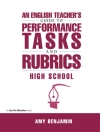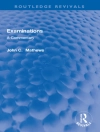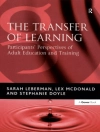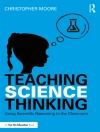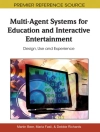Simple. Comprehensive. Logical. This book is a companion guide for anyone completing a research project in the social sciences. It covers the whole research process, from planning, developing, collecting data, analysing data, and writing up. It will help you manage and complete your research project successfully.
It will guide you on:
-Planning your research project
-Developing data collection tools
-Analysing and interpreting data
-Presenting your research in different formats
Featuring chapter objectives, checklists, student exercises, weblinks, and further reading, this comprehensive guide ensures readers navigate the complexities of research within a manageable step-by-step framework.
Daftar Isi
Introduction
Chapter One: What is Social Science Research and Why is it Important?
Chapter Two: Planning a Social Science Research Project
Chapter Three: Reviewing Social Science Literature
Chapter Four: Being an Ethical Researcher
Chapter Five: Methods of Social Science Data Collection
Chapter Six: Social Science Data Analysis
Chapter Seven: Presenting Your Social Science Research
Chapter Eight: Introducing and Concluding
Chapter Nine: Submitting Your Social Science Research Project
Tentang Penulis
Jamie Lewis is a Reader in Sociology at Cardiff University’s School of Social Sciences. His research is mainly situated in the Sociology of Science and Technology Studies (STS), but also extends to the public understanding of science (PUS) and medical sociology. He is presently working on a Expert Citizen Science project on air pollution. He is one of the authors of Psychiatric Genetics: from hereditary madness to big biology and is writing a book examining the development and stabilisation of Bigfootology. His area of research interests include:· developments in qualitative research;· the boundaries between science, pseudo-science and non-science· the sociology of biomedical knowledge with particular emphasis on the social implications of new genetic and stem cell technologies;· issues of culture, interdisciplinarity and collaboration in big science;· public engagement and public understanding of risk;· aspects of practical accomplishment and modelling in the laboratory;· science, activism and civic repair.He is also an editor of the journal, Qualitative Research.


